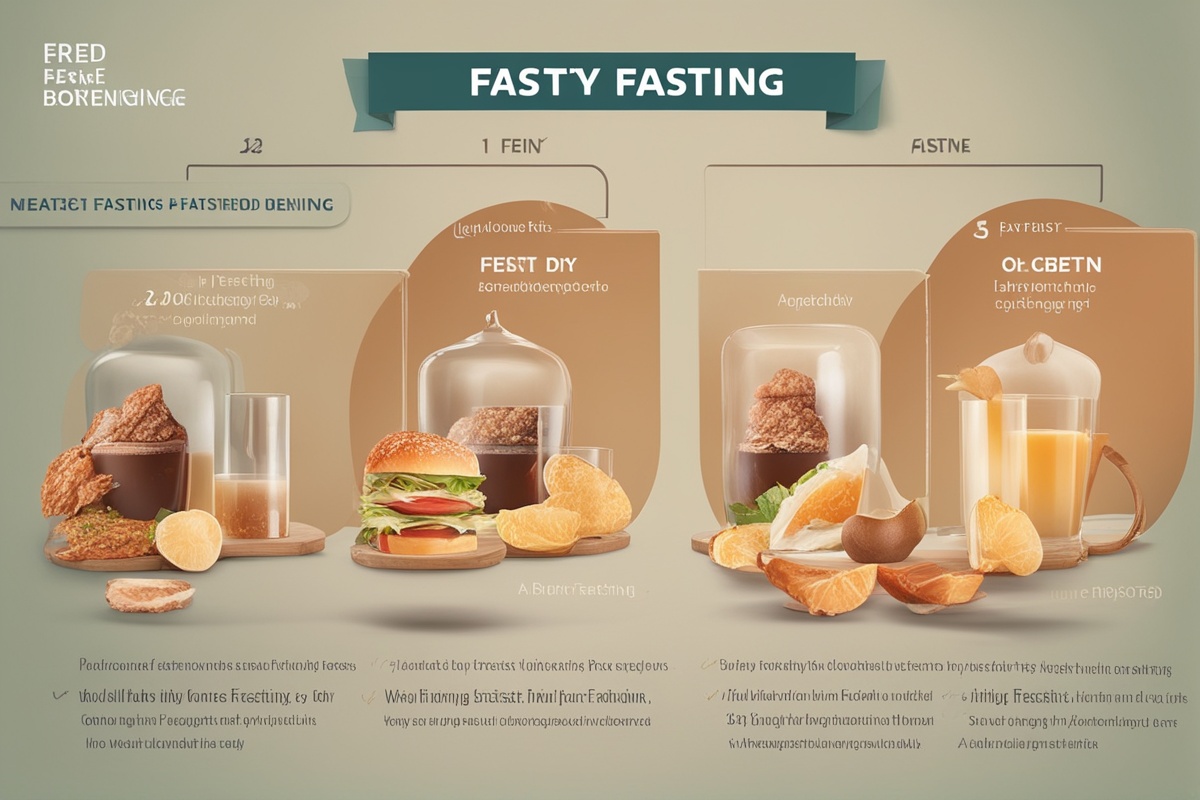Fasting has been practiced for centuries across various cultures and religions, often for spiritual or health reasons. In recent years, prolonged or extended fasting—fasting for periods longer than 24 hours—has gained significant attention in the health and wellness community. This practice is not just a trend; it’s backed by science for its numerous benefits to physical and mental well-being. In this post, we’ll explore the key advantages of extended fasting and why it might be worth considering as part of a healthy lifestyle.
What Is Extended Fasting?
Extended fasting refers to abstaining from food for a prolonged period, typically ranging from 24 hours to several days or even weeks, under proper supervision. Unlike intermittent fasting, which involves shorter fasting windows (like 16:8 or 5:2 methods), extended fasting pushes the body into deeper metabolic states. Water, electrolytes, and sometimes black coffee or tea are often consumed during these fasts to maintain hydration and energy. Understanding the key advantages of extended fasting begins with recognizing how this practice impacts the body on a cellular and systemic level.
Promotes Autophagy and Cellular Repair
One of the most remarkable benefits of extended fasting is its ability to trigger autophagy, a natural process where the body cleans out damaged cells and regenerates new, healthier ones. During prolonged fasting, the body shifts its focus from digestion to repair, recycling cellular components to optimize function. Research suggests that autophagy may play a role in preventing diseases like cancer and Alzheimer’s by removing toxic proteins and damaged mitochondria. This cellular cleanup is a cornerstone of the key advantages of extended fasting, offering a reset for long-term health. For more on cellular health, check out our post on Tips for Boosting Cellular Health.
Supports Weight Loss and Metabolic Health
Extended fasting is a powerful tool for weight loss and improving metabolic health. When the body exhausts its glycogen stores during a fast, it turns to stored fat for energy, a state known as ketosis. This process not only aids in shedding excess pounds but also improves insulin sensitivity, reducing the risk of type 2 diabetes. Additionally, fasting can lower levels of triglycerides and cholesterol, further supporting cardiovascular health. Many individuals report sustained energy and reduced cravings after fasting, highlighting the key advantages of extended fasting for metabolic balance. Curious about ketosis? Read our detailed guide on Understanding Ketosis and Its Benefits.
Enhances Mental Clarity and Focus
Beyond physical benefits, extended fasting can significantly impact mental health. During a fast, the body produces ketones, which serve as an alternative fuel source for the brain. Ketones are known to enhance cognitive function, improve focus, and even protect against neurodegenerative diseases. Many people report heightened mental clarity and productivity during extended fasts, often describing it as a “mental reset.” This cognitive boost is one of the standout key advantages of extended fasting, making it appealing for those seeking improved mental performance. If you’re interested in brain health, explore our article on Nutrition for Brain Health.
Reduces Inflammation and Boosts Immunity
Chronic inflammation is at the root of many modern diseases, including heart disease, arthritis, and autoimmune disorders. Extended fasting has been shown to reduce markers of inflammation in the body, such as C-reactive protein (CRP). Additionally, fasting can stimulate the production of new immune cells by resetting parts of the immune system, a process particularly evident during prolonged fasts. This dual effect of lowering inflammation and enhancing immunity underscores the key advantages of extended fasting for overall health and disease prevention.
Improves Longevity and Disease Prevention
Perhaps one of the most exciting benefits of extended fasting is its potential to increase lifespan and protect against age-related diseases. Studies on animals and early human trials suggest that fasting can activate pathways like sirtuins, which are associated with longevity. By reducing oxidative stress, improving metabolic markers, and promoting cellular repair, fasting may help delay aging and lower the risk of chronic conditions. This connection to a longer, healthier life is among the most compelling key advantages of extended fasting. For additional insights on aging gracefully, see our post on Anti-Aging Lifestyle Tips.
Disclaimer: While the benefits of extended fasting are supported by emerging research, it is not suitable for everyone. Individuals with medical conditions, pregnant or breastfeeding women, and those with a history of eating disorders should consult a healthcare professional before attempting prolonged fasting. This post is for informational purposes only and should not be considered medical advice. Always prioritize safety and listen to your body when exploring fasting practices.
References
- Mattson, M. P., & Wan, R. (2005). Beneficial effects of intermittent fasting and caloric restriction on the cardiovascular and cerebrovascular systems. Journal of Nutritional Biochemistry.
- de Cabo, R., & Mattson, M. P. (2019). Effects of Intermittent Fasting on Health, Aging, and Disease. New England Journal of Medicine.
- Longo, V. D., & Mattson, M. P. (2014). Fasting: Molecular Mechanisms and Clinical Applications. Cell Metabolism.
- Mihaylova, M. M., et al. (2019). Fasting Activates Fatty Acid Oxidation to Enhance Intestinal Stem Cell Function. Nature.
- Anton, S. D., et al. (2018). Flipping the Metabolic Switch: Understanding and Applying the Health Benefits of Fasting. Ageing Research Reviews.
This content is for informational purposes only and not a substitute for professional advice.






